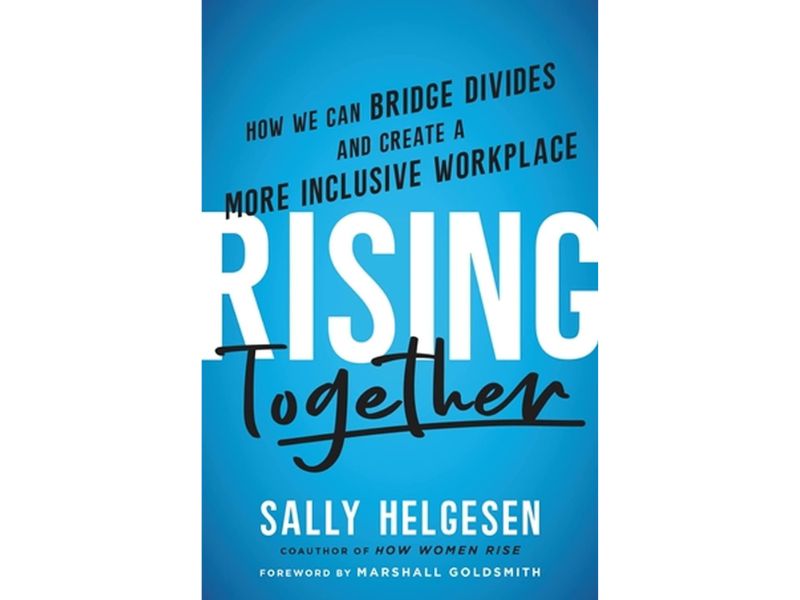
Christina Rebel, Chief Innovation Officer, Head of Data Intelligence and Cofounder of Wikifactory
With March being Women’s History Month, it provides an opportunity for reflection on how much we’ve progressed, but also on how far we’ve yet to go.
This journey forward now also has the added complications and challenges brought about by the pandemic, with many studies indicating that women in the workforce will be especially vulnerable to its impact for years to come. In the first 11 weeks of the pandemic alone, part-time jobs fell 70 per cent, a labour that women make up three-quarters of. Mothers are also more likely to be furloughed or have their hours cut. Therefore, it’s clear that there’s still a distance that industries still need to go before the playing field is level.
I’ve seen a great deal of positive change over the years in the engineering and manufacturing sectors. When I first started out, I was often one of the only women in the room at industry events and conferences. Today, however, I find myself surrounded by truly inspirational female founders, engineers and product designers from all backgrounds and parts of the globe. That said, there is still a mountain to climb, with recent figures revealing that, within the manufacturing industry alone, only 2.7% of companies worldwide are led by women.
Reconstructing a male-dominated industry
The rise in new and innovative technologies, combined with the growth of global teams, has potentially paved the way for greater diversity and equality in industries around the world. Interestingly, previous studies have shown that developing economies – including Myanmar, Tunisia and Honduras – lead the world in gender parity in engineering, with the highest proportion of female engineering graduates at 65 per cent, 42 per cent and 41 per cent, respectively. The majority of OECD countries increased the number of female engineering graduates over the period 2008–12, with the most notable rises seen in the emerging economies of Mexico, Hungary and Turkey (by over 150 per cent).
Whilst we’ve evidently progressed far, we’re still not where we want to be, particularly in these industries. Increased diversity improves industry growth, but, moving forward, it’s important that we take inspiration from our successes as well as learn from recent events in order to implement positive change for the future. More women in the engineering and manufacturing sectors will hopefully accelerate the journey towards more sustainable, collaborative and ethical ecosystems. So, right now we are moving towards encouraging this change in order to remake industries for the better, for both people and the planet.
There’s still work to be done
About two years into developing Wikifactory with my co-founders, I fell pregnant with my son. It was an exciting yet very risky period in our startup journey and we were just a team of four, so naturally I was concerned about how it would impact my contribution to our company. Choosing to be open about my own fears and discussing these concerns as a team enabled us to build a true shared belief that rather than being an obstacle to success, becoming a mother was only going to make me a more creative and agile entrepreneur. This helped cement our core values of openness and diversity plus aided our path towards finding new ways of organising ourselves to accommodate each of our individual needs and strengths.
However, many women still don’t have such benefits, and companies accommodating for the needs required for maternity leave is very much a new thing. There’s still much groundwork to be done in terms of formal policies and understanding. Whilst it’s incredible to celebrate and discuss the amazing work many inspirational women have done, and continue to do, these sectors are still very much on this journey.
Diversity and collaboration will reinvent the meaning of success
Companies will always be in competition with each other, but if we work together to improve diversity in industry, we all end up winning. As well as having our own personal targets or those of the businesses we work for, it’s important to adopt a wider view and take steps to create a more diverse and inclusive future.
Wikifactory, for example, is part of the EU-funded program Critical Making – an initiative aimed at developing systematic methods to promote diversity and inclusion in open hardware development. So whether it’s in our daily interactions with our colleagues or our involvement with wider projects and schemes, there’s never been a better time to work together to create real and meaningful change.
If the challenges of the past year have taught us anything, it’s that extending understanding and empathy towards our fellow humans can help see us through even the most difficult of times. This is just as important in the world of work as it is in our daily lives. Although it’s been a while since many of us met with our colleagues face to face, the pandemic has encouraged us to consider each other as individuals – with our own unique set of circumstances and pressures – rather than just workmates, and provide support where needed.
To continue with this culture-shift will help to make sectors more appealing to a diverse range of talent in the future, creating innovative, flexible and resilient teams and companies.
WeAreTheCity covers the latest female centric news stories from around the world, focusing on women in business, careers and current affairs. You can find all the latest gender news here.
Don’t forget, you can also follow us via our social media channels for the latest up-to-date gender news. Click to follow us on Twitter, Facebook, Instagram, and YouTube.








